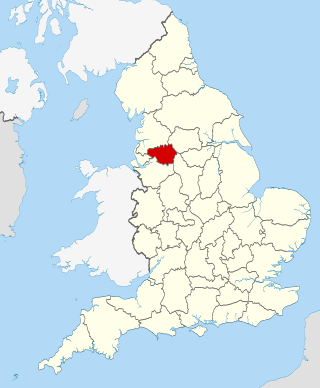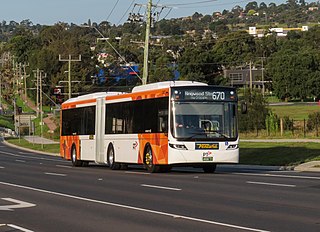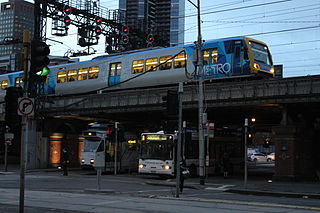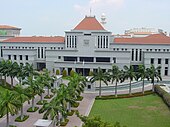
Transportation in Singapore is predominantly land-based, with a comprehensive network of roads making many parts of the city-state, including islands such as Sentosa and Jurong Island, accessible. The road network is complemented by a robust rail system consisting of the Mass Rapid Transit (MRT) and the Light Rail Transit (LRT), which cover the length and width of Singapore and serve a few neighbourhoods respectively. The main island of Singapore is also connected to other islands via ferryboat services. Furthermore, the city-state maintains strong international connections through two bridges linking it to Malaysia – the Causeway and the Second Link – and the Singapore Changi Airport, a major aviation hub in Asia.

The Mass Rapid Transit system, locally known by the initialism MRT, is a rapid transit system in Singapore and the island country's principal mode of railway transportation. The system commenced operations in November 1987 after two decades of planning with an initial 6 km (3.7 mi) stretch consisting of five stations. The network has since grown to span the length and breadth of the country's main island – with the exception of the forested core and the rural northwestern region – in accordance with Singapore's aim of developing a comprehensive rail network as the backbone of the country's public transportation system, averaging a daily ridership of 3.4 million in 2019.

The Land Transport Authority (LTA) is a statutory board under the Ministry of Transport of the Government of Singapore.

SMRT Corporation is a multi-modal public transport operator in Singapore operating bus and rail services. A subsidiary of the Government of Singapore's Temasek Holdings, it was established on 6 August 1987 and listed on the Singapore Exchange from 26 July 2000 until 31 October 2016. It is one of the two major operators of Singapore's rail services along with SBS Transit.

Transport for Greater Manchester (TfGM) is a local government body responsible for co-ordinating transport services throughout Greater Manchester in North West England. It is an executive arm of the Greater Manchester Combined Authority (GMCA), the city region's administrative authority. The strategies and policies of Transport for Greater Manchester are set by the GMCA and its Greater Manchester Transport Committee (GMTC). The committee is made up of 33 councillors appointed from the ten Greater Manchester boroughs, as well as the Mayor of Greater Manchester.

Public buses form a significant part of public transport in Singapore, with over 3.6 million rides taken per day on average as of December 2021. There are 352 scheduled bus services, operated by SBS Transit, SMRT Buses, Tower Transit Singapore and Go-Ahead Singapore. The newest bus operator, Go-Ahead Singapore started operation on 4 September 2016. There are also around 5,800 buses currently in operation as of 2020.

Paratransit or Intermediate Public Transport, is a type of transportation services that supplement fixed-route mass transit by providing individualized rides without fixed routes or timetables. Paratransit services may vary considerably on the degree of flexibility they provide their customers. At their simplest they may consist of a taxi or small bus that will run along a more or less defined route and then stop to pick up or discharge passengers on request. At the other end of the spectrum—fully demand responsive transport—the most flexible paratransit systems offer on-demand call-up door-to-door service from any origin to any destination in a service area. In addition to public transit agencies, paratransit services may be operated by community groups or not-for-profit organizations, and for-profit private companies or operators.

Bus deregulation in Great Britain involved the abolition of Road Service Licensing for bus services outside of Greater London. It began in 1980 with long-distance bus services and was extended to local bus services in 1986 under the Transport Act 1985. The abolition of Road Service Licensing removed the public sector's role in fare-setting, routes, and bus frequencies and returned those powers to bus operators.

Buses in Melbourne, Australia, are a major form of public transport in Melbourne, with an extensive bus network. There are 346 routes in operation with a varying range of service frequencies, operated by privately owned bus companies under franchise from the State Government. The Night Network bus system consists of 10 routes and operates on Friday and Saturday nights, and a SmartBus orbital bus network currently consisting of nine routes, which is intended to facilitate cross city travel, while the current network is predominantly a radial network. Most of the bus network is a covered by the myki ticketing system.

Taxis of Singapore come in two main varieties. Traditional taxi companies offer flag down and call bookings and their drivers are hired employees of the company. Ridesharing companies allow bookings through a smartphone, allowing ease for passengers, these are mostly known as private hire vehicles (PHV). Their apps also allow the flexibility to work and pick up passengers with their own vehicle, be it owned or rented, provided the various requirements are met depending on the company.

Transport in Melbourne, the state capital of Victoria, Australia, consists of several interlinking modes. Melbourne is a hub for intercity, intracity and regional travel. Road-based transport accounts for most trips across many parts of the city, facilitated by Australia's largest freeway network. Public transport, including the world's largest tram network, trains and buses, also forms a key part of the transport system. Other dominant modes include walking, cycling and commercial-passenger vehicle services such as taxis.

Rail operators are government-assisted profit-based corporations, fares and ticketing on Singapore's Mass Rapid Transit (MRT) system are aimed to break-even or exceed operating expenses. Rail operators collect fares based on account-based (ABT) and card-based ticketing options, the prices of which are calculated based on the distances travelled between the origin and destination. These prices increase in stages for standard non-concessionary travel, according to the distances travelled. In account-based ticketing, the fare is automatically calculated in the back-end and charged to the passenger post journey. On the other hand, card-based ticketing is proprietary to the transport network and the fare is computed by the system based on the store values recorded in the cards. The public transit system is harmonising towards full ABT.
The Public Transport Council (PTC) is an independent regulatory statutory board under the Ministry of Transport of the Government of Singapore established on 14 August 1987 by the Public Transport Council Act of 1987.
Translink is the public transit agency for Queensland, and is part of the Department of Transport and Main Roads. Translink was first introduced by the Queensland Government in June 2003 to orchestrate bus, ferry, rail and light rail services. They work with Brisbane Airtrain, Transport for Brisbane, RiverCity Ferries, Queensland Rail and other operators to provide services. Translink operates an integrated ticketing system across Queensland and the go card system to allow the use of one ticket on multiple services in South East Queensland.

Buses account for close to six per cent of trips each day in the city of Sydney, New South Wales, Australia, forming a key part of the city's public transport system. The network initially evolved from a privately operated system of feeder services to railway stations in the outer suburbs, and a publicly operated network of bus services introduced to replace trams in the inner suburbs. The bus network has undergone major reforms since the 2000s–2010s, with the New South Wales Government taking responsibility for route and fare-setting, opening contracts for most routes up to competitive tendering, and introducing more cross-suburban services.

The Transport Act 1985 was an act of Parliament in the United Kingdom. It introduced privatised and deregulated bus services throughout Great Britain and came into effect in October 1986.
Loyang Bus Depot is the second bus depot to be built by the Land Transport Authority in Singapore. It is located at Loyang Way at the junction of Pasir Ris Drive 3 and houses 31 services under the Loyang Bus Package. Loyang Bus Depot is currently being operated by Go-Ahead Singapore under the contracting model package.

Tower Transit Singapore is a contracted bus operator operating in Singapore. It commenced operations on 29 May 2016 and it is a subsidiary of Kelsian Group.

Go-Ahead Singapore is a contracted bus operator operating in Singapore. It commenced operations on 4 September 2016 and it is a subsidiary of the Go-Ahead Group.

The Bus Contracting Model (BCM), formerly known as the Government Contracting Model, is a contracting model introduced by the Land Transport Authority (LTA) in 2014 for public buses in Singapore, implemented in 2016. The BCM is based on the Transperth model in Perth, Western Australia with quality incentive elements from London Buses. Under the BCM, local and overseas bus operators bid for contracts to operate public bus services on behalf of LTA. The LTA has also adopted a new unified lush green livery and logo for all buses, and now procures and owns the bus fleet for all public bus services in Singapore.


















